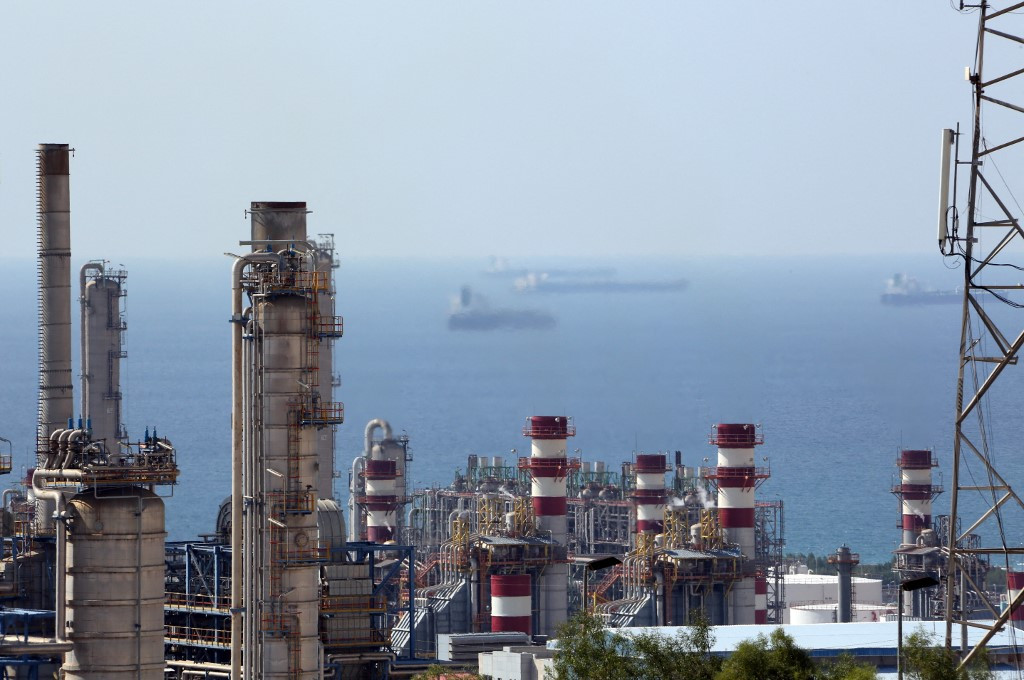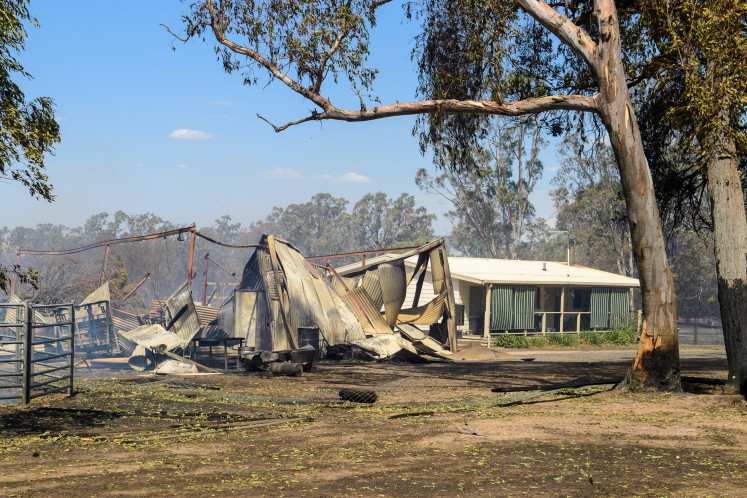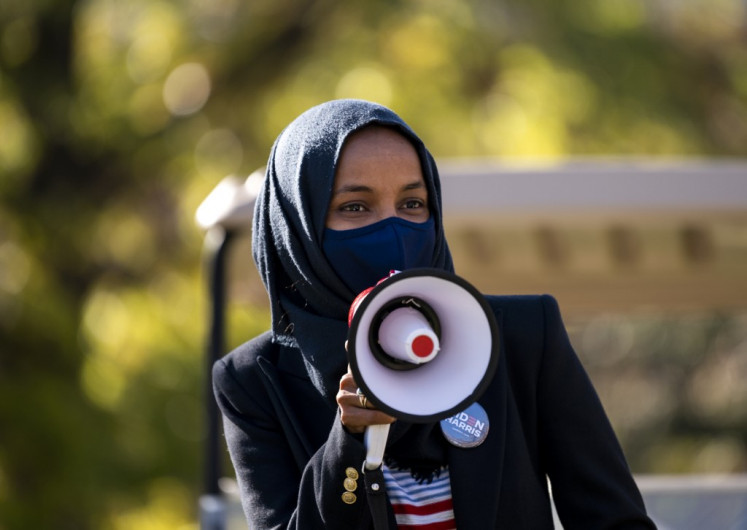Popular Reads
Top Results
Can't find what you're looking for?
View all search resultsPopular Reads
Top Results
Can't find what you're looking for?
View all search resultsIran's oil minister visits key oil terminal amid Israel strike fears
An Israeli military spokesman said on Saturday that Israel would retaliate, following last week's missile attack by Tehran, "when the time is right."
Change text size
Gift Premium Articles
to Anyone
I
ran's Oil Minister Mohsen Paknejad landed on Kharg island, the oil ministry's news website Shana reported on Sunday, amid concerns that Israel could target Iran's largest oil terminal there.
An Israeli military spokesman said on Saturday that Israel would retaliate, following last week's missile attack by Tehran, "when the time is right."
Following Iran's attack, Axios cited Israeli officials as saying that Iran's oil facilities could be hit in response. US President Joe Biden said on Friday that he did not think Israel had yet concluded how to respond.
"Paknejad arrived this morning in order to visit the oil facilities and meet operational staff located on Kharg island," Shana reported, adding that the oil terminal there has the capacity to store 23 million barrels of crude.
China, which does not recognise US sanctions, is Tehran's main client and according to analysts imported 1.2 to 1.4 million barrels per day from Iran in the first half of 2024.
On Saturday, Tehran's top diplomat in Damascus threatened an "even stronger" reaction to any aggression, as Israel readied its response to an Iranian missile attack earlier this week.
"Our reaction to any attack by the Zionist regime is completely clear," Foreign Minister Abbas Araghchi told reporters in the Syrian capital, where he met top officials including Tehran's ally President Bashar al-Assad.
"For every action, there will be a proportional and similar reaction from Iran, and even stronger," he said.
He spoke after an Israeli military official told AFP on condition of anonymity, as he was not authorised to discuss the issue publicly, the army was "preparing a response to the unprecedented and unlawful Iranian attack".
In Damascus earlier, Araghchi renewed his call for ceasefires in the Gaza Strip and in Lebanon.
Araghchi's visit, his first since he took office in August, comes almost a year after Iran-backed Palestinian militant group Hamas attacked Israel, triggering the war in Gaza.
The conflict has also drawn in Iran's Lebanese ally Hezbollah, and on September 23 Israel sharply intensified its campaign against the militant group.
"The most important issue today is the ceasefire, especially in Lebanon and in Gaza," Araghchi said.
"There are initiatives in this regard. There have been consultations that we hope will be successful."
His meetings in Damascus follow a visit to Beirut on Friday during which he voiced support for a truce in Lebanon acceptable to Hezbollah, "simultaneously with a ceasefire in Gaza".
He travelled to Syria's capital by air after Lebanon said an Israeli air strike on Friday severed the main international highway linking the two countries.
Israel said the strike aimed to prevent the flow of weapons to Hezbollah from neighbouring Syria.










